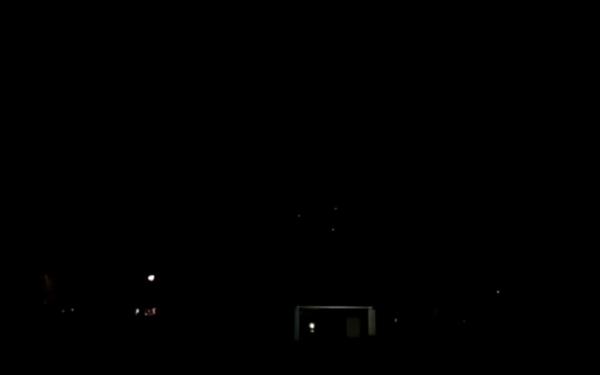Were Strange Lights Over Phoenix Really a UFO?

Get the world’s most fascinating discoveries delivered straight to your inbox.
You are now subscribed
Your newsletter sign-up was successful
Want to add more newsletters?

Delivered Daily
Daily Newsletter
Sign up for the latest discoveries, groundbreaking research and fascinating breakthroughs that impact you and the wider world direct to your inbox.

Once a week
Life's Little Mysteries
Feed your curiosity with an exclusive mystery every week, solved with science and delivered direct to your inbox before it's seen anywhere else.

Once a week
How It Works
Sign up to our free science & technology newsletter for your weekly fix of fascinating articles, quick quizzes, amazing images, and more

Delivered daily
Space.com Newsletter
Breaking space news, the latest updates on rocket launches, skywatching events and more!

Once a month
Watch This Space
Sign up to our monthly entertainment newsletter to keep up with all our coverage of the latest sci-fi and space movies, tv shows, games and books.

Once a week
Night Sky This Week
Discover this week's must-see night sky events, moon phases, and stunning astrophotos. Sign up for our skywatching newsletter and explore the universe with us!
Join the club
Get full access to premium articles, exclusive features and a growing list of member rewards.
According to reports submitted to a UFO organization, strange lights were seen hovering near Phoenix, Ariz., on the evening of Sept. 30.
One account entered into the Mutual UFO Network witness reporting database began, "I was at my friend's party when one of the children noticed some unusual green lights in the sky. At first I thought they must have been from a plane or helicopter, but they were moving too slowly and seemed to form a perfect triangle. My friend got her phone out and started to record them. As she started recording they seemed to pulsate a few times before returning to a triangle and then to just two green lights."
There are few other facts about the sighting. We don't know the identity of the eyewitnesses, where they were when they saw the lights, how high the lights were, or even what direction they were looking. Without this information, this report is difficult to assess, but there are a few things we can tell from the video and the eyewitness reports that shed light on the mystery. [Are We Alone in the Universe? New Analysis Says Maybe ]
Like many sightings of three lights in the sky , this UFO (or UFOs) was reported by the eyewitnesses as "seeming to form a perfect triangle." In fact, this description is clearly wrong, as we can tell from the video. Perfect triangles are those with numerically equal integer area and perimeter, which this was not. Perhaps the witness meant that the lights formed an equilateral triangle (whose sides are of equal length), but that's not correct either, since the formation at its clearest looks somewhat like a capital A on its side, and the lights are not equidistant. But enough geometry pedantics the fact is that any three lights in the sky, whether connected or not, will form a triangle. There's nothing particularly mysterious about that shape.
As it turns out, there were at least two other people who reported seeing similar (though not identical) lights in the sky on the same evening. For example, some people reported seeing two lights, not three; one witness reported, "a triangle-shaped object [with] three glowing green lights that, at times, seemed to pulsate."
Yet this eyewitness has also made an unsupported assumption that what he saw was actually a "triangle-shaped object." Instead, he saw three lights and assumed that each of those lights were fixed at the ends of three points. By this logic, had this witness seen four lights, he would have assumed it was a rectangular-shaped object in the night sky above him. This also might help explain why many UFO reports describe three lights: one or two lights are much less likely to be interpreted as points on a flying craft.
In fact, given the apparent distance from the eyewitnesses to the lights (and between the lights), it's very unlikely that the three lights were fixed on one aircraft (or spacecraft). A solid craft that large would likely be at least the size of a football field, would have been picked up on radar at the Phoenix airport, would have blotted out the stars, and would have been noticed by hundreds or thousands of Phoenix residents. Instead, the most likely explanation is that people were reporting three independent lights in the sky. The fact that the lights changed formation during the course of the sighting is also strong evidence that the lights were independently moving objects, not part of a spacecraft.
Get the world’s most fascinating discoveries delivered straight to your inbox.
What were those lights in the Phoenix night sky? With so little information to work from, it's impossible to say with certainty. They could have been distant aircraft, or even road flares tied to balloons (as previous Phoenix-area UFO hoaxes had been). The lesson, as always, is that "unknown lights in the sky" is not the same as "extraterrestrial spacecraft."
- Dead Aliens and Magnetic Boys: 6 Hoax Videos Debunked
- 7 Things That Create Convincing UFO Sightings
- UFO Sightings Spiked This Summer
Follow Life's Little Mysteries on Twitter @llmysteries, then join us on Facebook.
Benjamin Radford is deputy editor of Skeptical Inquirer science magazine and author of Scientific Paranormal Investigation: How to Solve Unexplained Mysteries. His website is www.BenjaminRadford.com.

 Live Science Plus
Live Science Plus










